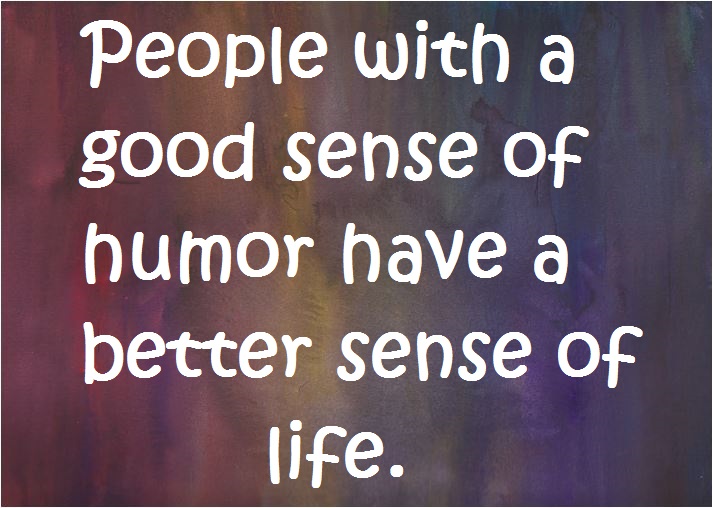A dry sense of humor, often characterized by its subtlety and understated delivery, is a fascinating aspect of comedic expression. The allure of this humor lies in its ability to evoke laughter without overt theatrics or flamboyant mannerisms. It typically relies on irony, sarcasm, and a deadpan delivery that leaves audiences pondering the implications of the words spoken rather than their literal interpretations. Understanding the nuances of a dry sense of humor can be both intriguing and enlightening.
To grasp what constitutes a dry sense of humor, it is essential to explore its defining features. Firstly, a hallmark of dry humor is its restrained delivery. The comedian or speaker employs a serious tone and nonchalant body language, often delivering one-liners or pithy observations that catch the audience off guard. This contrasts sharply with more exaggerated forms of humor that thrive on vocal inflection and physical comedy. A dry sense of humor often invites the listener to reflect on the absurdity of a situation, making the humor resonate on an intellectual level.
Next, irony plays a pivotal role in dry humor. It frequently involves expressing something contrary to what one actually means, thereby creating a twist that is both humorous and thought-provoking. For instance, a person might remark, “I’m not saying I’m the best at multitasking, but I can waste time, be unproductive, and procrastinate all at once.” This statement, while ostensibly serious, cleverly juxtaposes the notion of efficiency with the reality of inefficiency, evoking amusement through its clever wording.
Another significant component is sarcasm, which can serve as a bitter undertone to dry humor. Sarcasm involves saying the opposite of what is meant, often to mock or convey disdain. This technique requires a keen understanding of context and audience, as it can veer into unintentional offensiveness if not handled with care. A quintessential sarcastic remark might be, “Oh, great! Another meeting to discuss how we can eliminate meetings!” Here, the humor lies in the sharp contrast between the excitement one might generally expect and the staunchly negative sentiment expressed.
In addition to irony and sarcasm, the absurd can also play a significant role in establishing a dry sense of humor. It juxtaposes the ordinary with the utterly incongruous, creating a disconnect that invites laughter. For example, a comedic observation about a mundane life scenario can take an absurd turn: “I finally realized that the only thing standing between me and my goal is my complete lack of ambition.” The unexpectedness of the punchline, paired with an otherwise routine observation, enhances the comedic effect.
The versatility of dry humor is evident across various media. From literature and television to stand-up comedy, this form of humor manifests in myriad ways, appealing to diverse audiences. Classic literature boasts examples of dry humor through clever character dialogues and narratives. Authors like Jane Austen and Mark Twain masterfully employed irony to deliver social commentary while also ensuring their readers were thoroughly entertained.
In contemporary culture, television series such as “The Office” and “Parks and Recreation” exemplify dry humor through their distinctively awkward characters and situational comedy. The deadpan expressions of characters, combined with their often absurd situations, craft a landscape rich in understated humor. Furthermore, sitcoms that incorporate a mockumentary style frequently utilize dry wit, inviting viewers to innately engage with the farcical yet familiar scenarios presented on screen.
Stand-up comedy also hosts an abundance of comedians who thrive on a dry sense of humor. Comedians such as Steven Wright and Tig Notaro are renowned for their ability to deliver complex jokes with minimal expression, leaving audiences in stitches through their mere articulation of bizarre, everyday truths. Their capability to weave humor into straightforward narratives reveals that laughter often emerges not from the joke itself, but from the myriad thoughts and realizations it incites.
Moreover, the appeal of dry humor transcends cultural boundaries. While it may have its roots in specific linguistic or regional contexts, the nuances of irony and absurdity are universally relatable. For instance, a comment about the unpredictable nature of life can resonate with individuals from varied backgrounds, regardless of their experiences. This universality gives dry humor its enduring relevance, facilitating connections among people from disparate walks of life.
Nevertheless, it is vital to be mindful of the varying thresholds for humor among individuals. What may be perceived as a dry comedic gem by one person could be seen as detached or even offensive by another. Sensitivity to context—considering the audience, their experiences, and the cultural backdrop surrounding the humor—enhances the efficacy of delivering jokes that employ a dry sensibility.
In conclusion, a dry sense of humor is a multifaceted phenomenon characterized by subtlety, irony, and a touch of absurdity. Its essence lies in its ability to provoke thought while simultaneously eliciting laughter, creating a nuanced enjoyment that celebrates the complexities of language and human experience. By appreciating the intricacies of this comedic style, one can gain a deeper understanding of the art of humor and its power to unite individuals through shared amusement and reflection.
